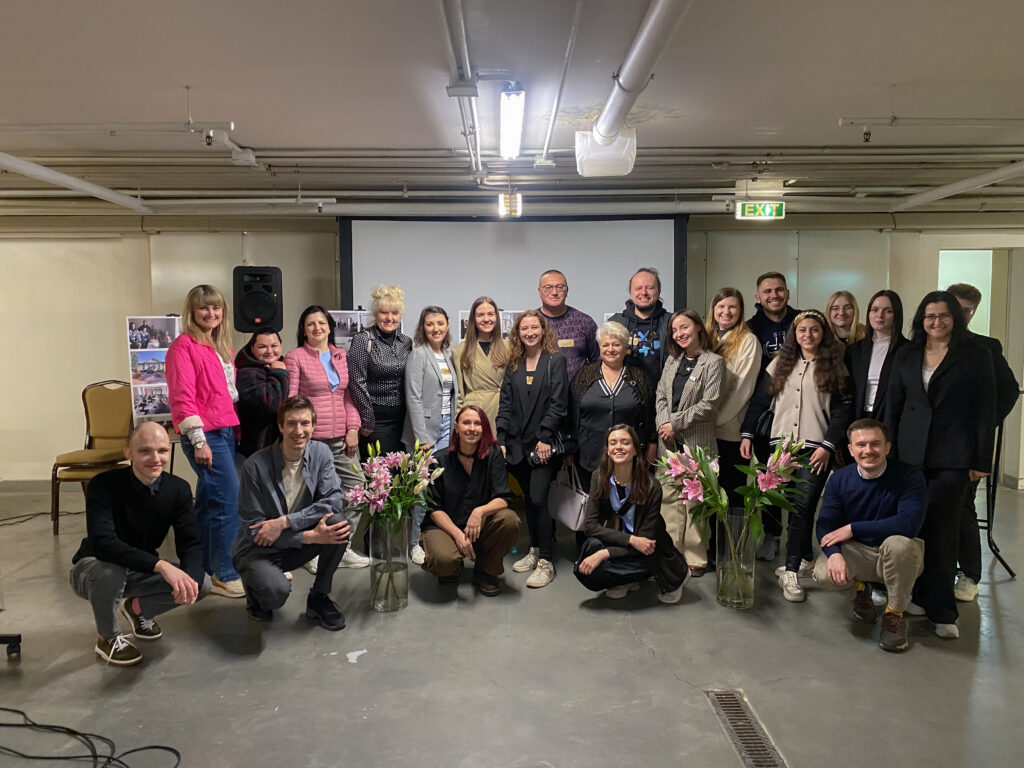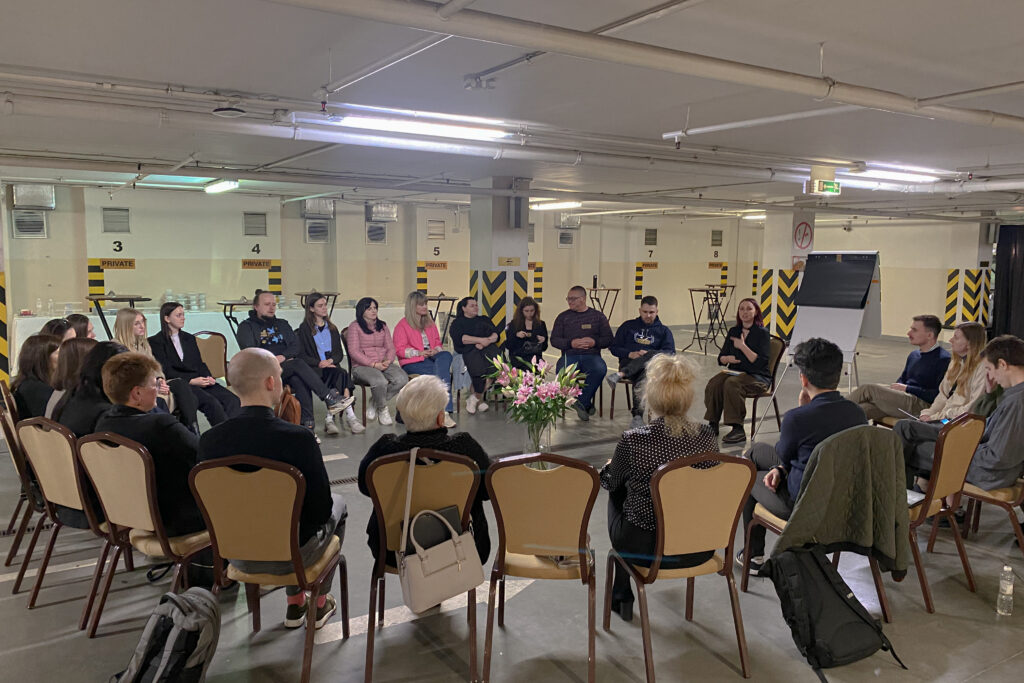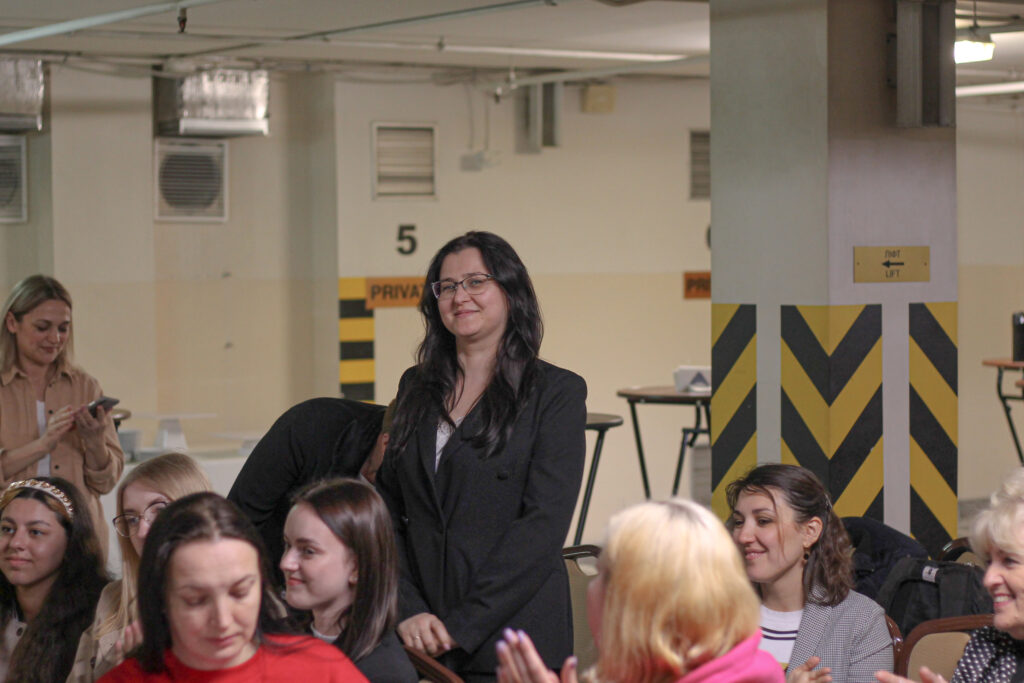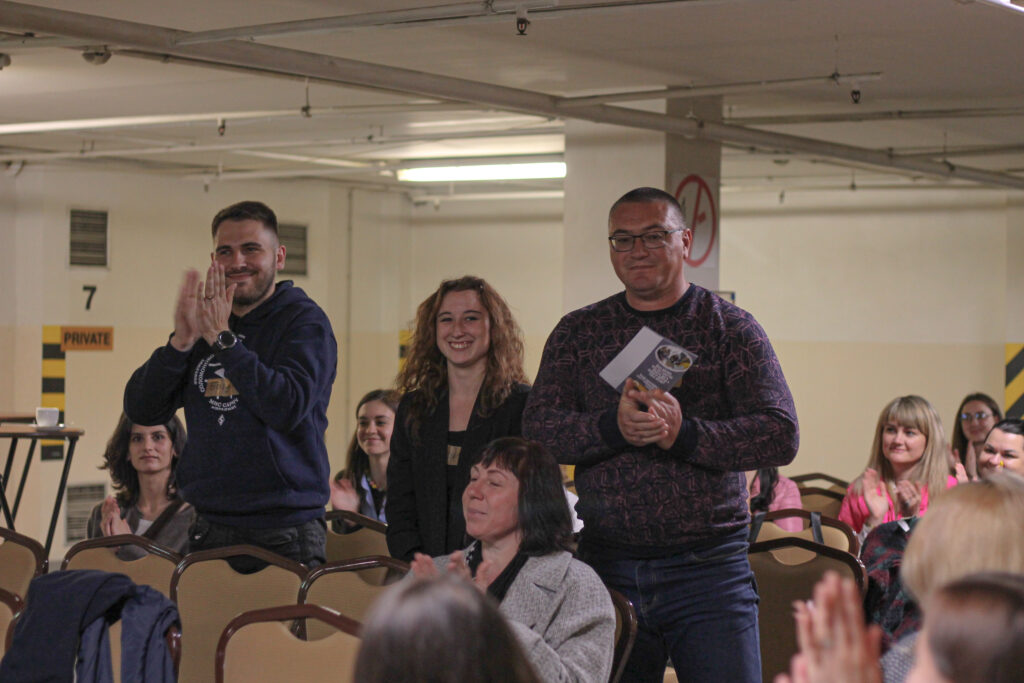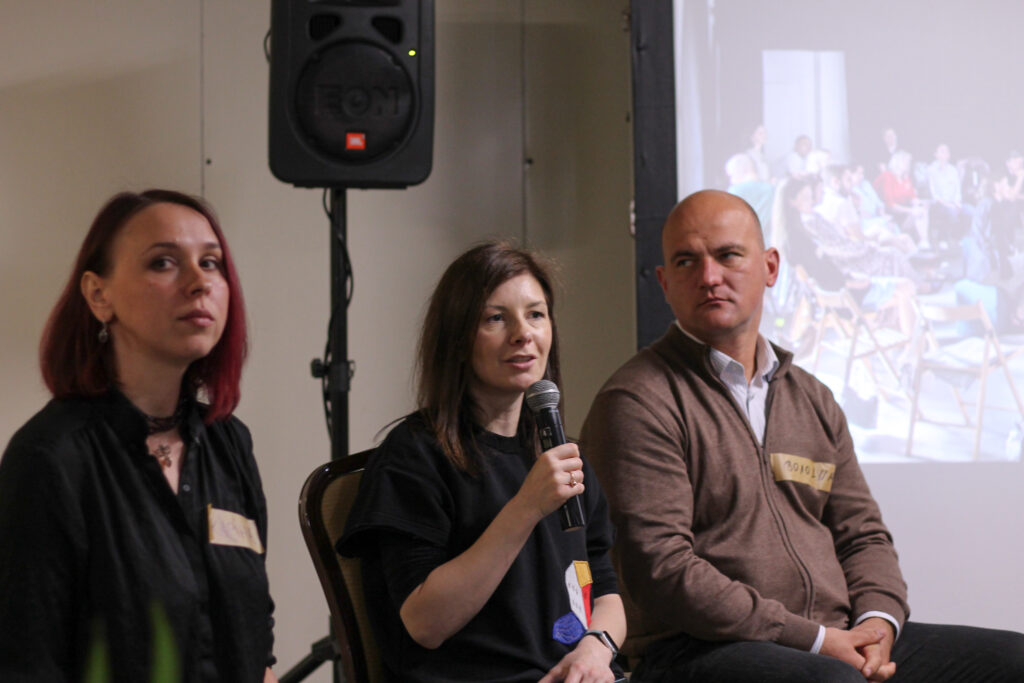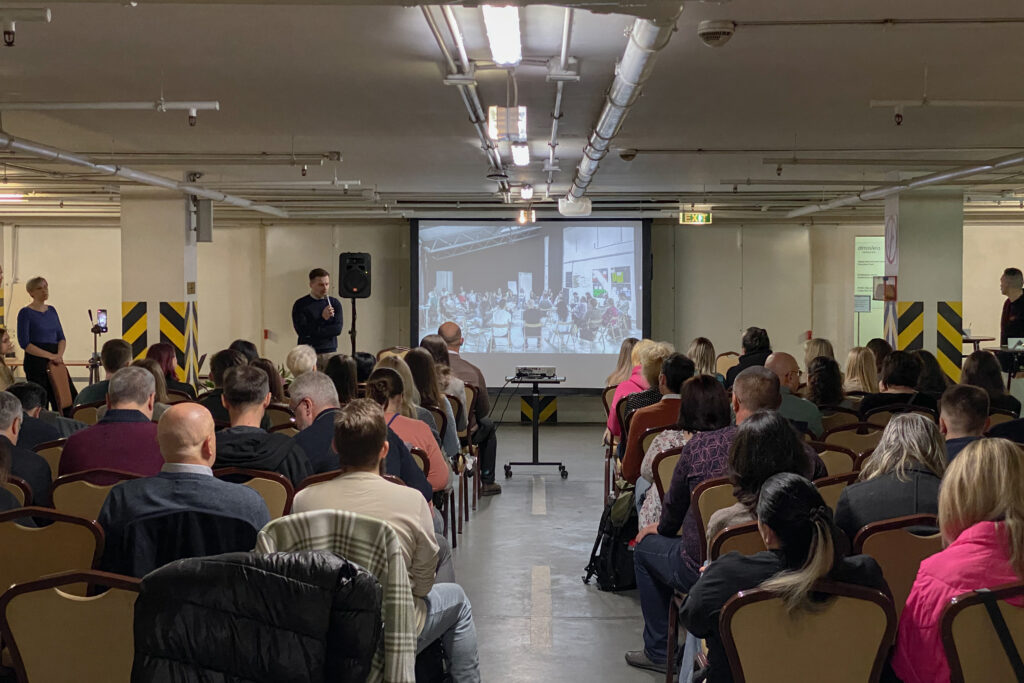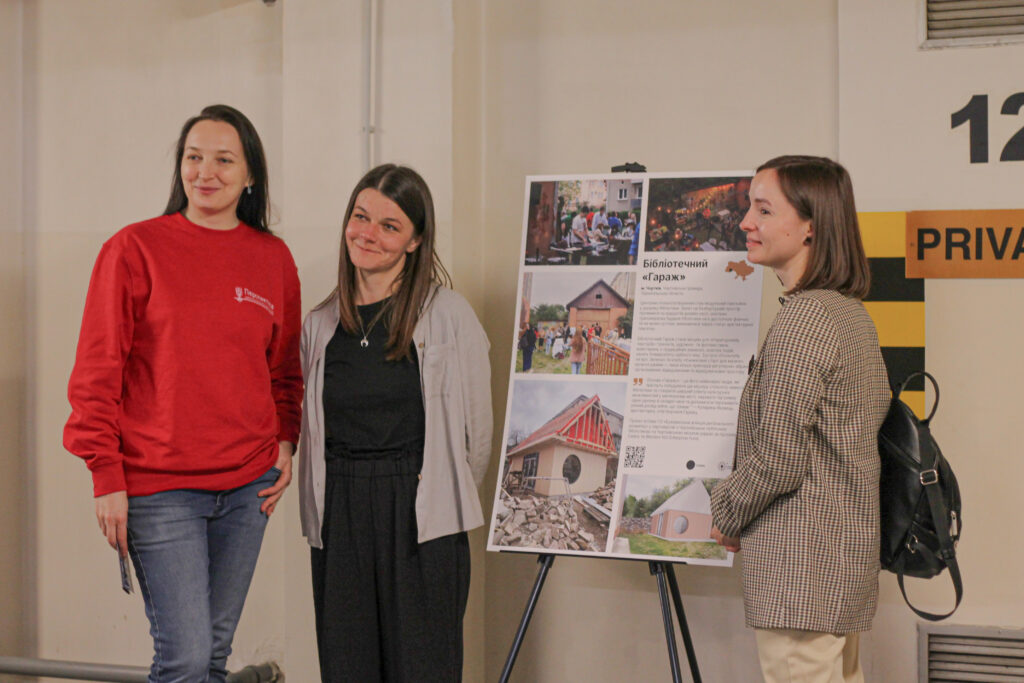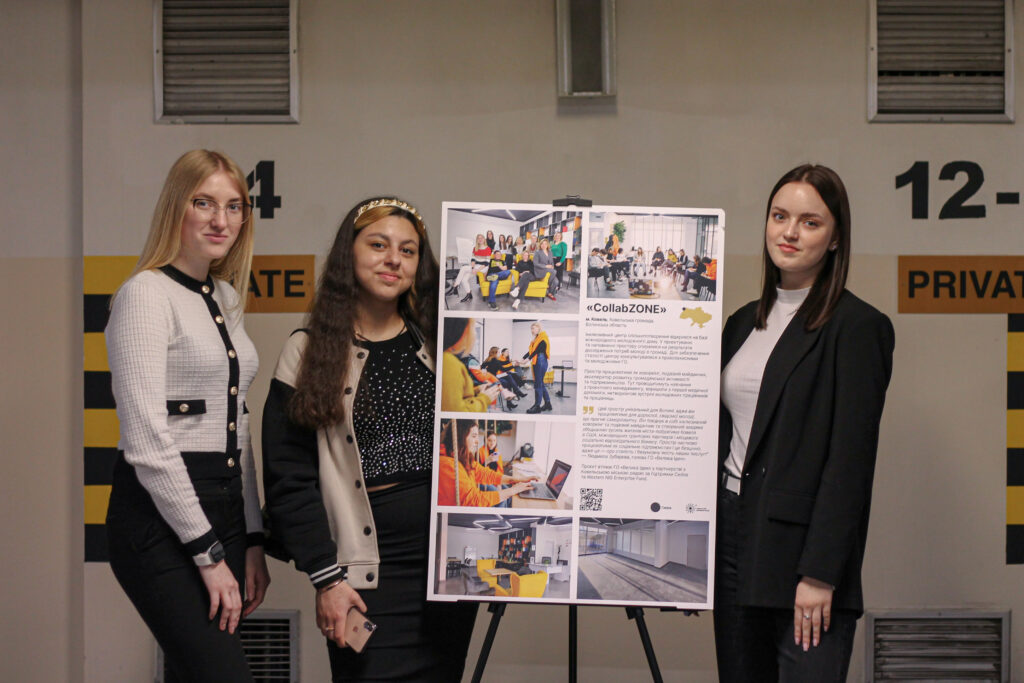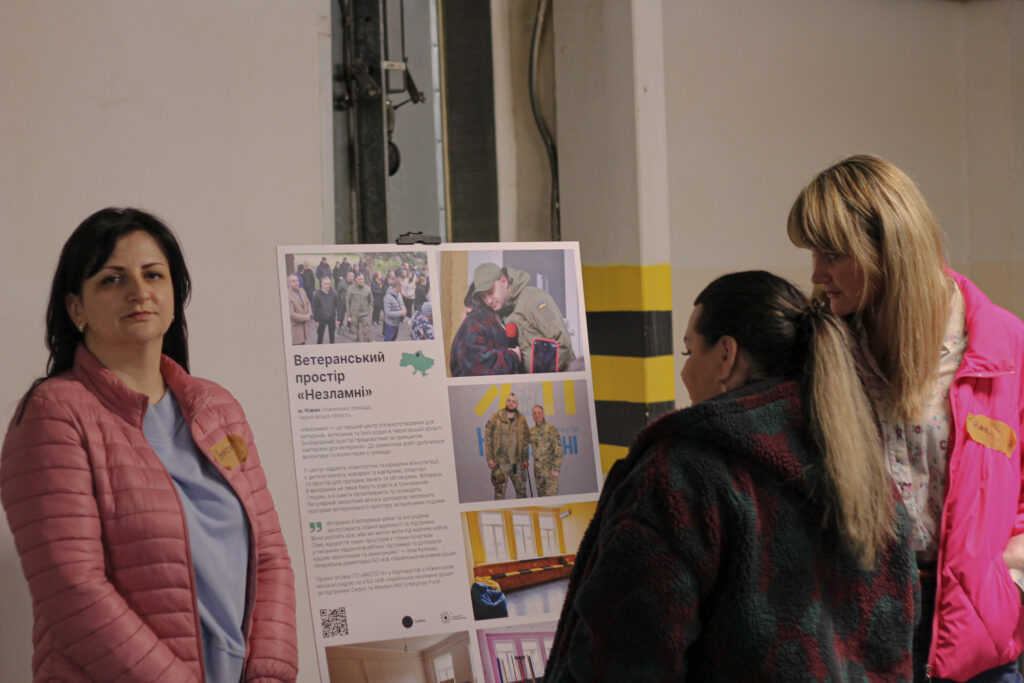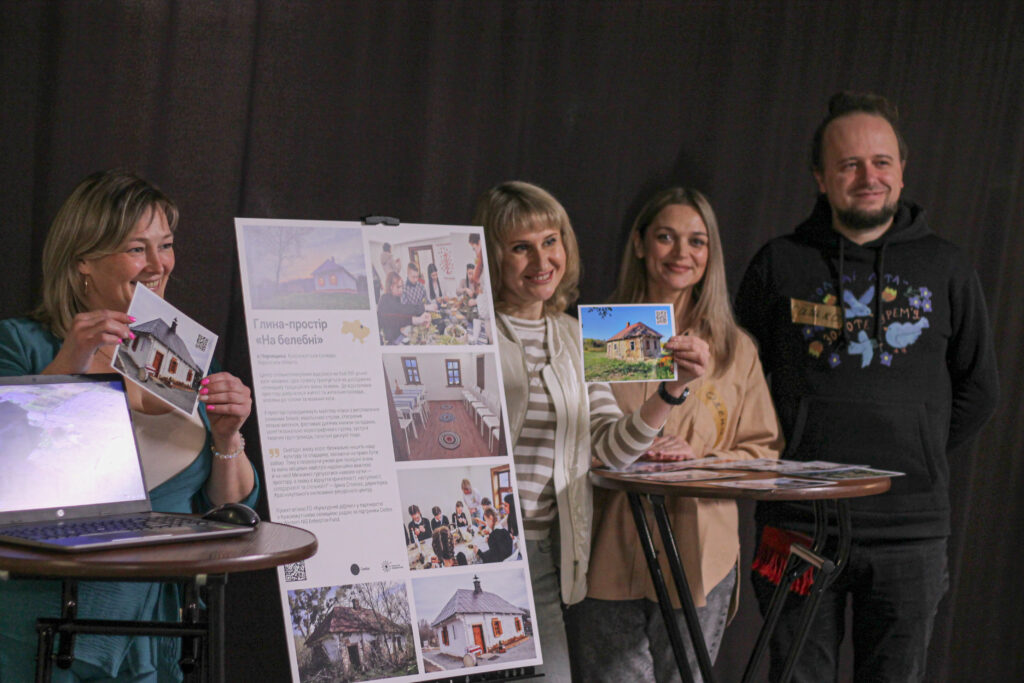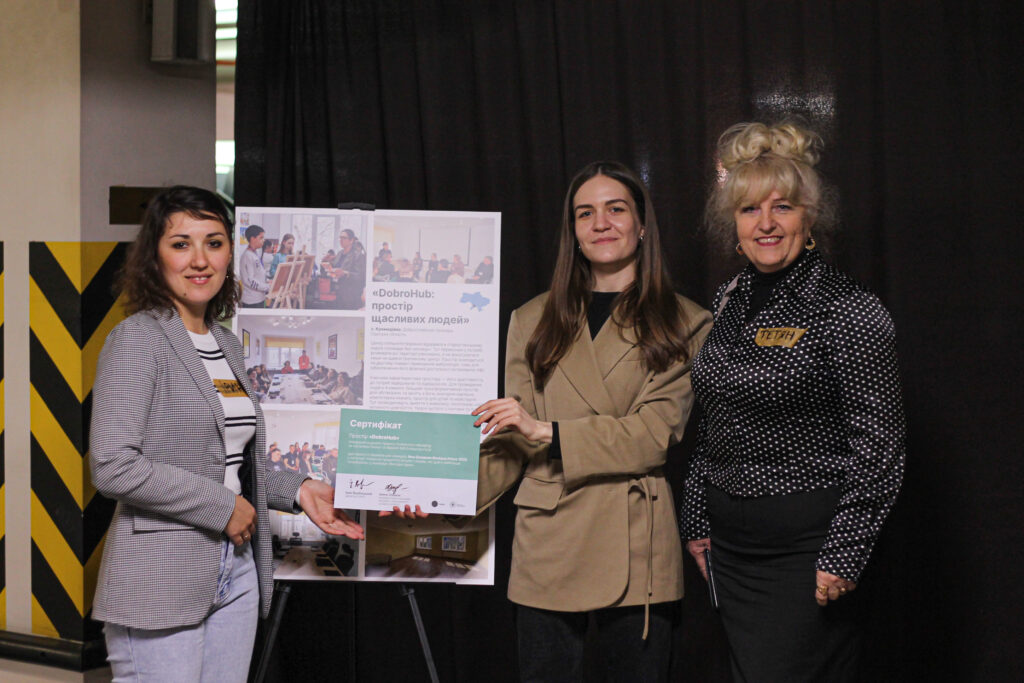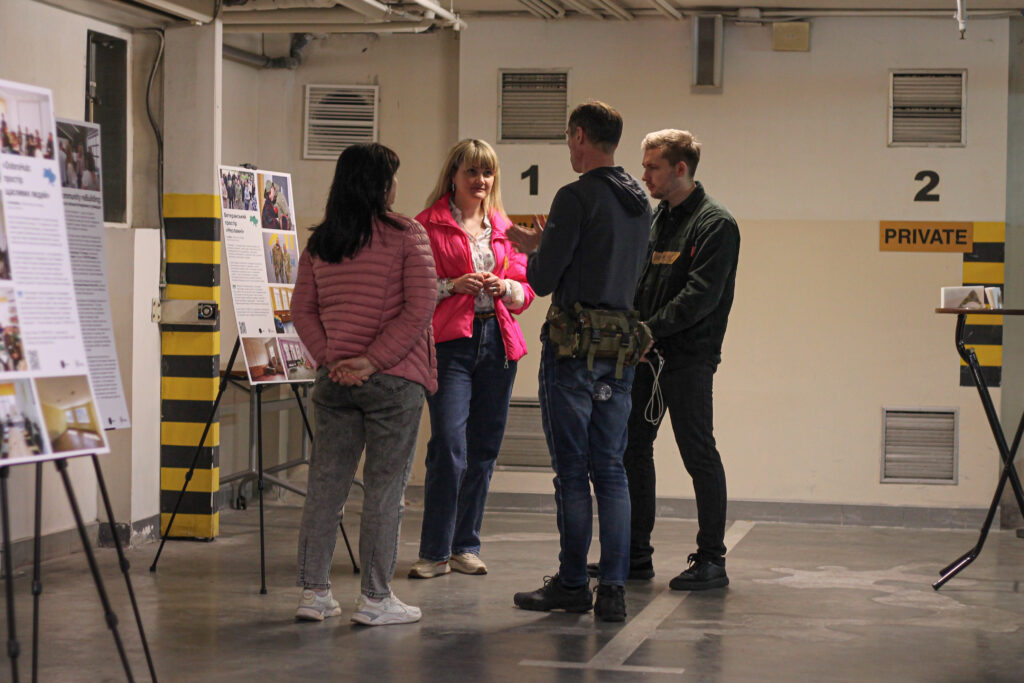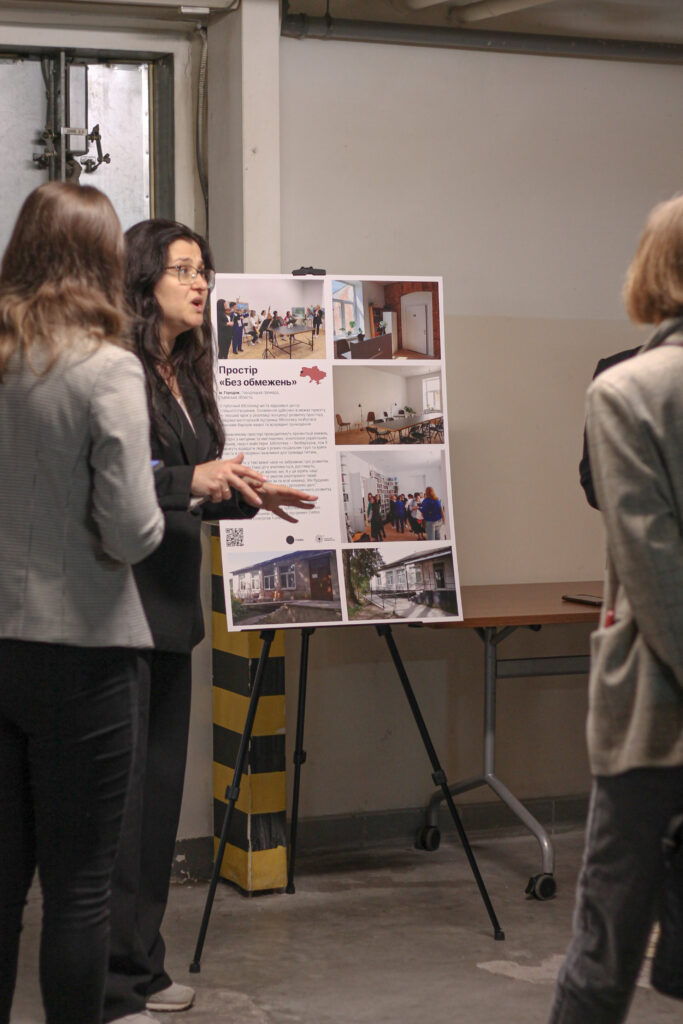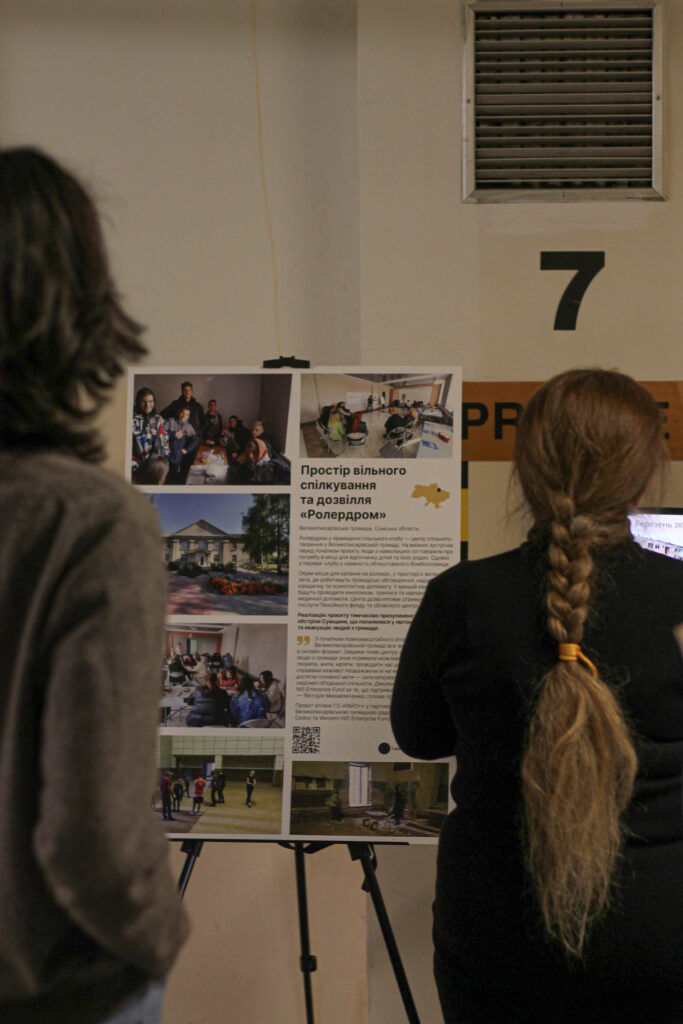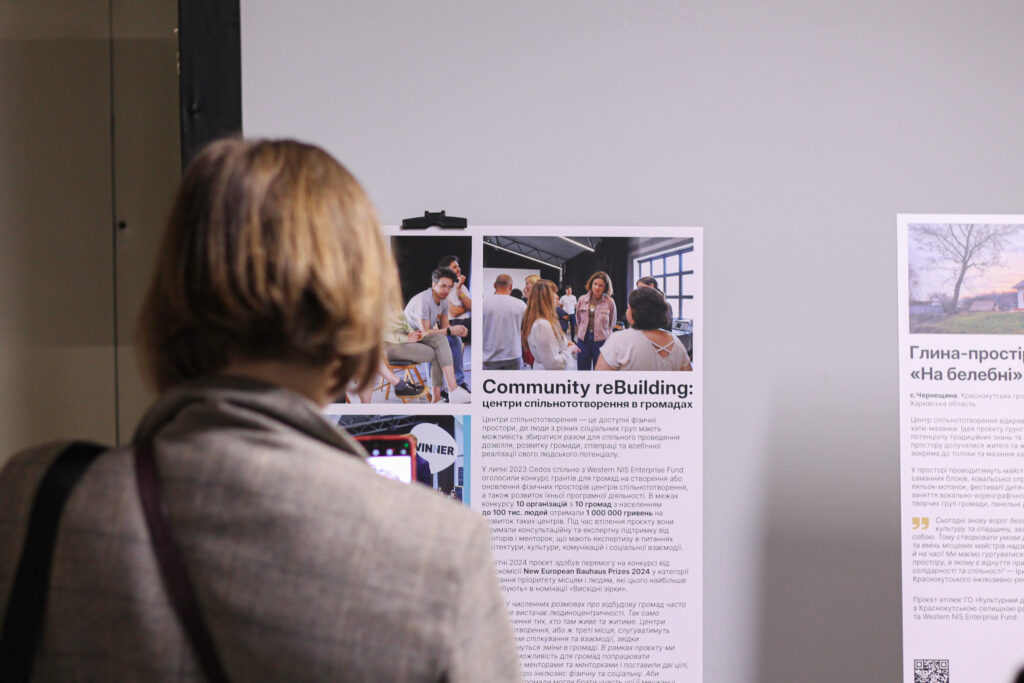On April 25-26, the final conference on the results of the “Community reBuilding” project, in which Western NIS Enterprise Fund and Cedos supported 10 Ukrainian hromadas in developing community centers was held. For two days, the teams shared the experience gained while working on the creation of community centers and talked about the successes and challenges along the way.
10 hromadas from all over the country worked to create, update, and develop inclusive community centers. The final conference featured a presentation of the project and a public discussion about the role of communities and public and cultural centers in the development of hromadas.
According to Ivan Verbytskyi, Cedos Director, Ukrainian hromadas are a great prospect and potential for Ukrainian society. Despite their different experiences during the war, people managed to get along with each other.
Since the first days of the full-scale invasion, Cedos has been working on researching the experiences of living during the war in Ukraine. According to the results, in response to the threat to the existence of Ukrainian statehood, many people want to invest more energy in supporting it. In particular, they want to participate more actively in the life of their hromada. The study also shows that different people have different experiences during the war, which can be a risk for misunderstandings in society. The answer to this risk is to create places where different people can communicate with each other. It is interaction and community building that will help strengthen social cohesion and avoid social conflicts.
Ivan Verbytskyi, Cedos Director
The “Community reBuilding” project won the New European Bauhaus Prizes 2024 in the Rising Stars nomination in the category “Prioritizing places and people who need it most.” This shows that on the way to the EU, we can not only learn and adopt the experience of others but also be able to create the best projects at the European level, the Cedos director is convinced.
Project coordinator Maryna Bakayenko presented the results of the work. According to her, 311 applications were received from different parts of the country, from which the jury members selected the top 10. Each hromada received a grant of UAH 1,000,000 and mentoring support. In addition, hromadas representatives took part in online seminars on sustainability, accessibility, working with veterans, etc.
The participants of the public discussion talked about why communities are relevant even in times of war and what opportunities and advantages small hromadas have for their development.
We understand that a hromada, no matter which it is, whether it is a city of one million inhabitants or a hromada of five thousand has the right to a decent space. The only requirement for community centers was accessibility in two dimensions – physical and programmatic. And we can already see that for veterans and the servicemen it can be a place where they are understood and supported. For displaced persons who have been forced to leave their cities, it is also a point of support where they can get help. For children, it is a place of socialization and acceptance. Therefore, these centers are very important.
Iryna Ozymok, Director of the Local Economic Development Program at WNISEF
On the Cedos Facebook page you can watch the recording of the public discussion, which was attended by Iryna Ozymok, Director of the WNISEF Local Economic Development Program, Oleksiy Erinchak, founder of the Sens bookstore and co-founder of the Sensor media, Kateryna Zarembo, Senior Associate Fellow at the New Europe Center and Volodymyr Shmatko, head of the Chortkiv community.
We are grateful to the teams of the “Community reBuilding” project and the participants of the conference for their engagement and interest in hromadas development!
Support Cedos
During the war in Ukraine, we collect and analyse data on its impact on Ukrainian society, especially housing, education, social protection, and migration





